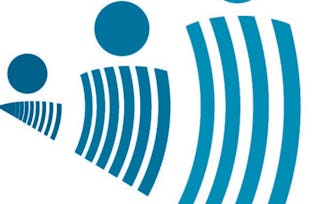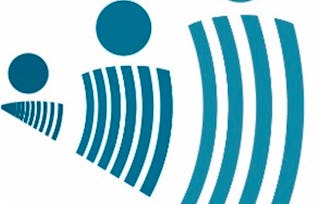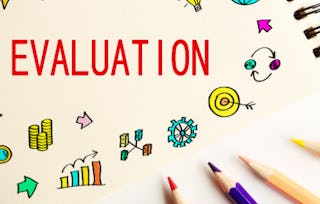Welcome to the Program Design and Evaluation course! By the end of this course, you will gain an in-depth understanding of the conceptual and methodological steps in designing and evaluating a program or a project to operationalize a public policy initiative. You will learn how a program aims to allocate resources to its intended beneficiaries by engaging multiple stakeholders. You will analyze its necessity when a market, generally seen as the most efficient mechanism to allocate resources, fails to do the needful in the desired measure. You will further explore that the beneficiary of a program or a project may be an individual, a firm, or even a collective community, an organization, and different layers of a state. You will analyze that while a program or a project involves collective public action, it is necessary to ensure that such action delivers the desired outcomes. The course focuses on how program design entails identifying the required collective actions relevant for translating a public policy initiative into desired social outcomes, even if such actions may succeed or fail to deliver the desired outcomes. You will gain insights into how program design, implementation, and evaluation feedback help make a program or a project successful in meeting its stated objectives.

Program Design and Evaluation
Ends soon: Gain next-level skills with Coursera Plus for $199 (regularly $399). Save now.

Recommended experience
What you'll learn
Identify the role of a program or project in operationalizing a public policy decision.
Describe the steps in designing a program or project and how these may have to be tailored to meet context-specific requirements.
Identify and implement the steps involved in evaluating a program/project.
Skills you'll gain
Details to know

Add to your LinkedIn profile
September 2025
27 assignments
See how employees at top companies are mastering in-demand skills

There are 7 modules in this course
In this module, you will learn how public policy, when conceptualized, must be operationalized through a project or program. You will know how operationalization involves designing a program or project and solving the problem of coordination failure. You will learn about the coordination framework to engage various stakeholders, often with conflicting interests regarding the problem and its solution. You will analyze collective action to reduce the conflict zone in the process.
What's included
9 videos6 readings4 assignments
In this module, you will learn about two fundamental processes of a program or project. First, you will gain an understanding of the control types that vary across resources and lead to project design that can take care of the property rights of resources that cannot be better managed using private property regimes. Second, you will learn about the requirement to think and apply various ways of assigning property rights. You will explore how a properly designed project takes care of these two fundamental processes.
What's included
7 videos4 readings4 assignments
In this module, you will learn how a program theory relates to two components of a program. You will know that the first component develops the change theory, the normative part, and how it identifies the main features to be changed through the program to achieve the planned changes. Further, you will learn about the second component that involves the action theory, the operational part, to bring about changes to be pursued. The module focuses on these two components and provides the fundamental, conceptual, and operational basis for giving a program its intended outcomes.
What's included
7 videos5 readings5 assignments
In this module, you will learn about the specific steps in a program design and how to implement a designed program. You will learn about the specific phases of designing a program, integrating the two components of the program theory. You will also examine how the different components of program design mechanics are integrated into a complete holistic program framework.
What's included
7 videos3 readings3 assignments
This module focuses on the logical framework. You will learn how it evolved during the evaluation exercises over the last five decades. You will explore how it is considered a logical structure that links project design, implementation, and evaluation in a single but linear perspective to facilitate the program to achieve its desired goals.
What's included
7 videos3 readings4 assignments
This module focuses on the evaluation of a program that is generally concerned about its merit or worth. From an analytical perspective, you will learn that they need not always fetch the same results. You will analyze that while merit investigates the intrinsic value created by the program for the intended beneficiaries, worth looks at the extrinsic value of the program offered to those who are paying for the intervention. Hence, the two approaches may not always yield the same results. The module also discusses the fundamental difference between research and evaluation regarding their intended goals.
What's included
7 videos4 readings4 assignments
Programs were made a concrete component of international development cooperation measures. The International Development Practitioners were keen to know the development effectiveness of the programs implemented by different agencies. So, the operational perspectives of the evaluation processes were mainly developed by those engaged with the Development Advisory Council of the Organization for Economic Cooperation and Development (OECD). They came out with five specific evaluation criteria in 1992, which were recently modified in 2020, and added one more criterion, with some of the existing ones being modified.
What's included
7 videos3 readings3 assignments
Build toward a degree
This course is part of the following degree program(s) offered by O.P. Jindal Global University. If you are admitted and enroll, your completed coursework may count toward your degree learning and your progress can transfer with you.¹
Instructor

Offered by
Explore more from Governance and Society
 Status: Free Trial
Status: Free TrialJohns Hopkins University
 Status: Free Trial
Status: Free TrialJohns Hopkins University
 Status: Free Trial
Status: Free TrialJohns Hopkins University
Why people choose Coursera for their career





Open new doors with Coursera Plus
Unlimited access to 10,000+ world-class courses, hands-on projects, and job-ready certificate programs - all included in your subscription
Advance your career with an online degree
Earn a degree from world-class universities - 100% online
Join over 3,400 global companies that choose Coursera for Business
Upskill your employees to excel in the digital economy
Frequently asked questions
To access the course materials, assignments and to earn a Certificate, you will need to purchase the Certificate experience when you enroll in a course. You can try a Free Trial instead, or apply for Financial Aid. The course may offer 'Full Course, No Certificate' instead. This option lets you see all course materials, submit required assessments, and get a final grade. This also means that you will not be able to purchase a Certificate experience.
When you purchase a Certificate you get access to all course materials, including graded assignments. Upon completing the course, your electronic Certificate will be added to your Accomplishments page - from there, you can print your Certificate or add it to your LinkedIn profile.
Yes. In select learning programs, you can apply for financial aid or a scholarship if you can’t afford the enrollment fee. If fin aid or scholarship is available for your learning program selection, you’ll find a link to apply on the description page.
More questions
Financial aid available,


